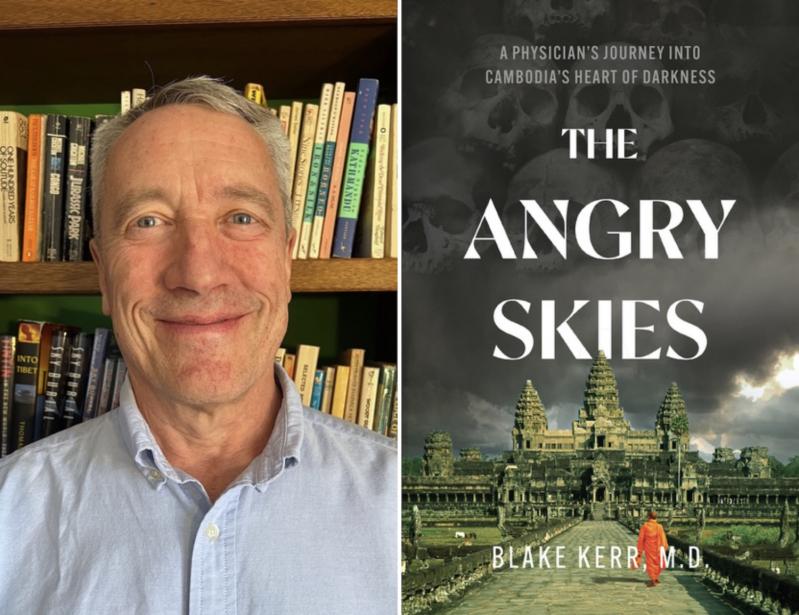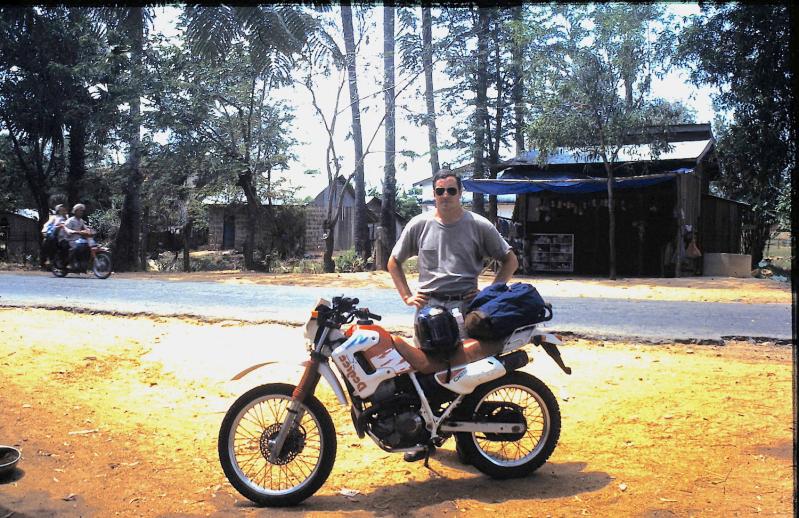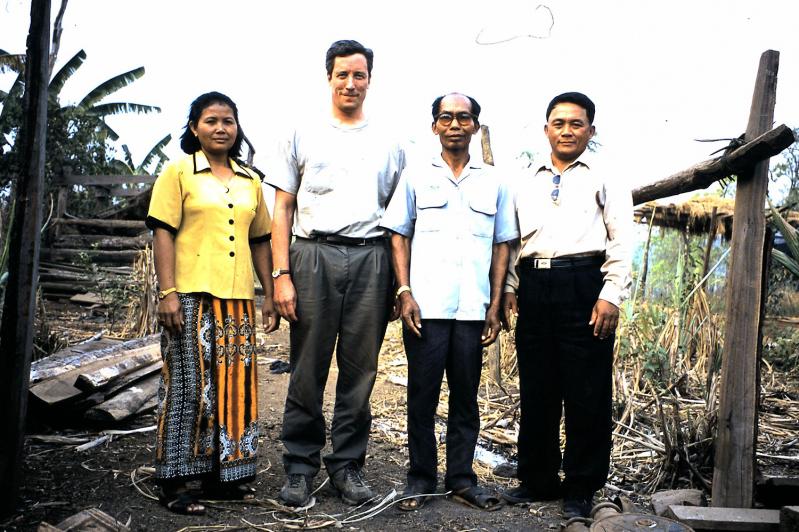You go to school to become a doctor. You become a human rights activist after climbing the first 22,000 feet of Chomohunga (the Tibetan side of Mount Everest) in a pair of sneakers and then stumbling across China’s military occupation of Tibet, in Lhasa.
That’s the way Dr. Blake Kerr, who served the South Fork from his Wainscott Walk-In Medical Care office for 20 years, tells it. It was all rather casual and accidental.
Paying renegade Khmer Rouge soldiers off with Viagra and cash was a bit more calculated, but we’re jumping ahead.

Accident or not, Dr. Kerr will give a talk about his experiences, focusing on a health care clinic he helped establish in Cambodia, detailed in his new book, “The Angry Skies: A Physician’s Journey Into Cambodia’s Heart of Darkness,” next Thursday at the Unitarian Universalist Congregation of the South Fork in Bridgehampton.
His talk coincides with the 50-year anniversary of Phnom Penh’s fall, on April 17, 1975.
Fresh out of graduating from the State University at Buffalo School of Medicine in June 1987, Dr. Kerr, with his friend John Ackerly, bought a one-way ticket to Hong Kong and traveled overland across China and into Tibet.
“We saw a lot of people killed. We figured we would go back and try to document what was going on. I saw a kid beaten to death with a shovel. That’s kind of when my life changed.”
For the next 13 years, he made trips to China working on human rights investigations and documenting abuse. The experience yielded his first book, “Sky Burial: An Eyewitness Account of China’s Brutal Crackdown in Tibet,” the foreword of which was written by the Dalai Lama.
When he was no longer allowed into China, he turned his focus to Cambodia, in the hope of interviewing survivors of its genocide, which began after the 1975 fall of Phnom Penh.
His first visit in 2000 was darkly auspicious. He met Khat Mann, a former Khmer Rouge soldier who had “a Ph.D. in killing.” Khat Mann was a child soldier during the 1970s genocide, “killing thousands,” according to Dr. Kerr. By the time the two crossed paths, Khat Mann was in Phnom Vor, a Southern Cambodian outpost of aging Khmer Rouge under the control of Chhouk Rin, a Khmer Rouge commander and warlord.
For the next three years he would visit the country for two months at a time, traveling with the Phnom Vor gang to other Khmer Rouge enclaves, meeting some of the architects of the genocide. In 2001, he started a clinic with Dr. Noun, the gang’s surgeon. He gained information from victims, but also received firsthand accounts of crimes from the perpetrators, like Khat Mann.
“Khat Mann was psychotic. He was a real piece of work. A very dangerous guy. If you’re getting ready for a court presentation, or trying to get information for international organizations, it’s really important to try to interview the perpetrators of crimes, not just the victims. It gets much more credible evidence, so Khat Mann took me by surprise.”
Dr. Kerr had become “obsessed” with the deaths of three backpackers from France, Britain, and Australia, kidnapped, held hostage, and then ultimately killed by Khat Mann in 1994. He only murdered them after he had cut their Achilles tendons and made them crawl and work in a field for a month.
Over all, the doctor made six trips to Cambodia (“That I could talk about”). In 2003, comfortable with these decidedly shaky arrangements, he took a camera man with him. The footage they shot became “The Angry Skies: A Cambodian Journey,” released in 2006. At the New York International Film and Video Festival that year it was the audience’s choice for best feature documentary.

“Chhouk Rin threatened to kill me for hours. It was all very straightforward. He said, ‘I will kill you if you ask about Pol Pot. I will kill you if you ask about the backpackers.’ I realized I needed a way to have control,” Dr. Kerr said. That’s where the Viagra came in handy. “I told them I had ‘magic pills.’ Chhouk Rin had been shot in the penis.” The pills and $10 a day assured Dr. Kerr’s safety.
How were these men, Khmer Rouge soldiers who engaged in genocide, still free, holding onto regional power in their home country, 25 years later? “The movie helped pressure the Cambodian government to finally go after these guys,” Dr. Kerr said.
“The book is like the movie, only with more details. I initially went there thinking I would be writing a book, and here we are 20 years later.”

